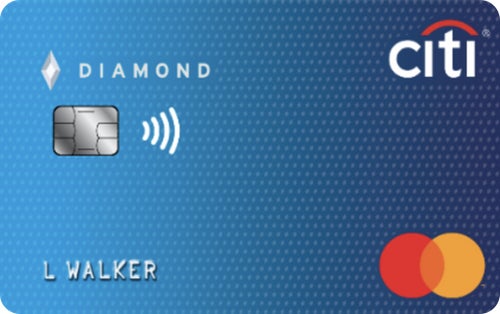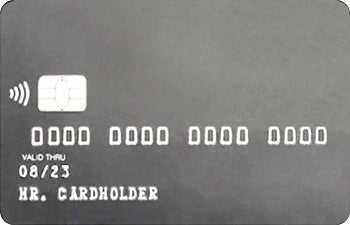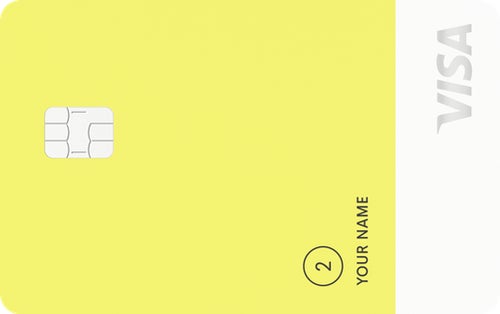- Intro Offer
-
No current offer
- Annual fee
- $0
- APR
- 27.74% (Variable)
- Recommended Credit A credit score is used to indicate an applicant’s credit worthiness and may provide guidance about account eligibility. It does not necessarily guarantee approval for any financial product.
- No Credit History
- Rewards rate
-
N/A This card doesn’t offer cash back, miles, or points
Citi is an advertising partner
The Citi® Secured Mastercard®* helps people rebuild or establish their credit with responsible use. Cardholders can begin to create a history of positive credit through on-time payments when they’re approved and submit a one-time, refundable security deposit.
A security deposit is required as collateral for secured credit cards in exchange for approving applicants with poor or limited credit. It will act as your starting credit limit and can be refunded after a certain amount of time and after showing responsible habits.
Like many secured credit cards, the Citi Secured doesn’t offer a rewards program, as its sole purpose is to rebuild or establish credit. It’s a good option for people who are new to credit cards and are looking to learn responsible habits. Because it’s a secured credit card, the Citi Secured Mastercard is easier to qualify for than an unsecured credit card -- one that typically doesn’t require a security deposit.
Security deposit
Here is the biggest difference between secured credit cards and unsecured credit cards. Secured cards require a one-time, refundable security deposit upon approval to act as collateral. Unsecured cards, by contrast, use your credit scores to determine your level of risk as a borrower. Because secured cards don’t require a strong credit history to qualify, cardholders instead supply the deposit.
The security deposit acts as the card’s starting credit limit, and -- in most cases -- can be refunded after showing responsible credit card use over time. The Citi Secured Mastercard is no different.
The minimum security deposit cardholders can provide for the Citi Secured is $200, while the maximum is $2,500. Keep in mind you can only deposit in increments of $100. Cardholders will have 14 days after approval to connect a bank account and provide the deposit. $200 is the standard minimum credit limit for most secured cards, but the maximum varies.
The more you deposit, the higher your starting credit line will be, meaning you should deposit what you comfortably can. A higher credit limit isn’t only good for making purchases, but it also leads to a better credit utilization, which in turn contributes to healthy credit scores. Your credit utilization ratio is how much of your total available credit you’re using across all your credit accounts. A lower credit utilization is better for your credit scores.
Citi doesn’t explicitly say when the deposit will be refunded, but it does note that it could occur if you graduate to an unsecured product within the first 18 months or any subsequent renewal period, or if your account is closed and your balance is paid in full. Other issuers, which often offer to refund the security deposit in a matter of months with responsible use, may be faster in this regard.
Other card perks
Secured cards don’t usually offer much outside of the ability to build credit. They’re more to be used as stepping stones to bigger and better unsecured cards after your credit score improves. That said, cardholders can keep an eye on their FICO credit score to monitor how they’re doing, as well as utilize account alerts to be sure no payments are missed.
Using the card responsibly
Be sure you’re paying your monthly statement balance in full each month. Not only is it a good habit to get into, but it is a great way to avoid paying interest charges. Statement balances accrue interest from the credit cards annual percentage rate, or APR on any part of the balance that you keep past your payment due date. Interest is usually compounded daily, but you aren’t responsible for the cost until your credit card statement comes due at the end of the statement period, typically giving you a 21-day grace period after your 30-day statement period ends.
While you can get away with simply paying the minimum on your account, you should always pay more if you can. The minimum payment is the least amount you can pay to avoid getting penalized. The minimum payment is usually a percentage of your overall balance if it’s high enough, or a fixed rate for lower balances.
Paying the minimum will keep your account in good standing, but it will lead to paying needless interest charges. By paying your full statement, you’ll save money in the long run.
You can set up account alerts to let you know when a payment is due so you don’t miss it. Set your due date to a time you’ll always remember. Citi might periodically review your account after a given time to see if you’re eligible to graduate to an unsecured card.
Comparable cards
Some other secured cards offer more perks in addition to rebuilding or establishing a positive credit history.
Discover it® Secured Credit Card
In addition to credit building opportunities, the Discover it® Secured Credit Card* is one of the few secured credit cards that offers cash-back rewards. You can earn 2% cash back at restaurants and gas stations (on the first $1,000 spent in combined purchases each quarter, then 1%) and 1% for everything else.
Better yet, Discover will essentially double the cash back earned in the first year with the card thanks to its Unlimited Cashback Match™ at the end of your first year.
Just like the Citi Secured, the Discover it Secured Credit Card requires a one-time, refundable security deposit of $200 up to a maximum of $2,500. However, unlike Citi, Discover clearly states that the deposit could be refunded after your account is seven months old, following a review looking for responsible card use.
You can read more about the Discover it Secured Credit Card here.
Capital One Platinum Secured Credit Card
The Capital One Platinum Secured Credit Card* is similar to the Citi Secured, only a bit more transparent. Depending on their credit, cardholders can make an initial deposit of either $49, $99, or $200 to form a starting credit limit of $200. Or, you could deposit more, up to $1,000, to get a higher limit.
In as little as six months, Capital One will automatically review your account to see if you qualify for an increased credit limit. You could even be graduated to the unsecured Capital One Platinum Credit Card* following consistently good credit behavior. So it clearly outlines a path forward in comparison to Citi. Citi doesn’t explicitly state when your deposit will be refunded, when the account review will take place, or how long until you can be considered for a credit line increase or for graduation to an unsecured card.
Like the Citi Secured, the Platinum Secured doesn’t feature any rewards or much else aside from an opportunity to build or establish credit. However, it may offer some cardholders more peace of mind knowing that there is a path forward, especially when you’re working to create a better credit score.
Check out our Capital One Platinum Secured Card review to learn more.
How Citi® Secured Mastercard® compares to other cards
FAQs
It’s possible to start seeing an improvement in credit scores within 30 days, but it likely won’t be a big one. Following responsible use, as in not missing any payments, you should start to see a larger improvement within six months.
An unsecured credit card is a credit card that uses someone’s credit scores as a way to determine how risky they are to take on. Secured cards, which have a lower credit requirement to qualify for, need a security deposit as collateral. The security deposit is often refundable following responsible card use, and forms the starting credit line for the card. Secured cards are typically only used by those who can’t qualify for unsecured cards.
There are a few ways to get your security deposit refunded. More often than not, the issuer will periodically review your account for responsible behavior and offer your deposit back. Or, the issuer will offer to graduate you to an unsecured card, which would also result in the refund of your security deposit. You can also get the deposit back by closing your account. However, keep in mind that closing an account can have a negative impact on your credit score.
*All information about the Discover it Secured Credit Card, Capital One Platinum Secured Credit Card, Capital One Platinum Credit Card, and the Citi Secured Mastercard has been collected independently by CNET and has not been reviewed by the issuer.
The editorial content on this page is based solely on objective, independent assessments by our writers and is not influenced by advertising or partnerships. It has not been provided or commissioned by any third party. However, we may receive compensation when you click on links to products or services offered by our partners.



